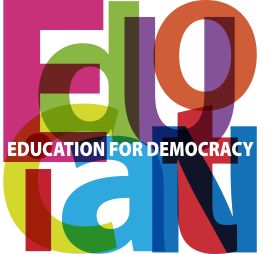Education for Democracy in the Republic of Moldova

Objective:
- To contribute to an inclusive, peaceful and democratic society with engaged citizens in the Republic of Moldova. The project objective is based on the premise is that education plays a key role in developing the knowledge and competences necessary for someone to become an engaged citizen. The project will help strengthen the capacity of the Moldovan education system to fulfil this role.
Expected Results/Outcomes:
- A policy framework and implementation guidelines regarding the civic education subject and the democratic governance of schools are developed in line with CoE’s Education for Democratic Citizenship and Human Rights Education (EDC/HRE) principles and the CoE’s Reference Framework of Competences for a Democratic Culture (CDC Framework).
- The national capacities to train teachers and to support them in the implementation of the reconceptualised civic education curriculum are reinforced via revised teacher training programmes, training of national teacher trainers and multipliers and other capacity building activities.
- Children and adolescents have developed the skills and acquired the knowledge to be able to participate in their schools’ and communities’ decision-making processes and they are offered opportunities to engage in community development activities in cooperation with the local public authorities and civil society organisations.
Main project results by area of activity:
Teacher training and strengthening of national in-service teacher training capacities on the new subject, and the Council of Europe tools and standards on which it is founded – EDC/HRE and RFCDC:
- The project delivered an intensive programme of professional development for teachers of civic education on the new RFCDC based civic education subject, and on other related themes, such as teaching controversial issues, in person and mostly on-line during the COVID pandemic. By the end of the project, all civic education teachers in Moldova had participated in one or several teacher training sessions organised by the project.
- The project trained eight national trainers and 70 local trainers who provided regular training to all civic education teachers on the “Education for Society” subject and the competences for democratic culture.
- The project also provided tailored support to the in-service teacher education centres at pedagogical faculties, as a result of which specific modules on the RFCDC were integrated in the training programmes, and a Master on civic education was instituted at the Pedagogical University “Ion Creanga”.
Development of methodological guidance for teachers:
- The methodology of assessment through descriptors based on the RFCDC descriptors, a key element of the competence-based approach, was developed and revised for several school years, taking into account the feedback from previous years.
- The methodological guidance for teachers on the organisation of the teaching process during civic education classes during several school years was developed and applied in schools. The methodology for the school year 2022-2023 also contains a chapter on cooperation between the Ministry’s network of Youth Centres and schools (civic education teachers in particular).
- The monitoring methodology on the implementation of the “Education for society” curriculum was developed and approved by the Ministry for piloting in the period February-May 2023.
- The methodological guidance for civic education teachers in connection to preparation for professional certification was developed and is being implemented.
Development of teaching guidelines and lesson plans for teachers:
- Teaching materials and lesson plans for teachers of all grades in lower and upper secondary education were developed by the project, piloted during one school year, finalised and then printed and distributed to all civic education teachers in the Romanian and Russian languages. The materials are fully consistent with the new curriculum, the new content and didactical approaches and with the Council of Europe’s standards.
Development of methodological guidelines on the democratic school governance:
- The Council of Europe developed and piloted in 49 schools the methodological guide on democratic school governance, which the Ministry intends to approve for nation-wide implementation in 2023. The project provided the necessary support for this process at the policy and capacity building/school levels.
Increasing awareness and understanding of the EDC/HRE principles and the RFCDC:
- The project launch conference was organised in May 2019 on the topic of “Promoting Democratic Values through Education in the Republic of Moldova”. The conference gathered over 160 education decision makers and professionals, schoolchildren, civil society organisations and development partners and discussed the key Council of Europe concepts, standards and approaches to democratic citizenship education and the ways in which these can be applied in the on-going curriculum reform process in the Republic of Moldova.
- The social media campaign “10 for Education for society” included eight video stories of young people who apply the competences acquired during civic education classes in their communities and two video stories of Moldovan teachers who speak about their experience of teaching the new civic education subject. The campaign was followed on Facebook by roughly 350,000 people.
- Two television talk shows on the public TV channel on the results and challenges in implementation of the RFCDC based subject “Education for society” and one on the piloting of the Democratic School Governance Methodological Guide (viewership varied between 60,000 to 70,000 people for each show).
- The contest of video stories “My Competences for Democratic Culture” for school children in grades 5 to 12 who were invited to prepare short video stories on how they apply the competences for democratic culture developed during their civic education classes in their schools and/or communities.
Project Information:
The Project was financed by the Swiss Agency for Development and Cooperation (SDC) and was implemented in cooperation with the Ministry of Education and Research of the Republic of Moldova in 2019 – 2022 in the framework of the Council of Europe Action Plan for the Republic of Moldova.
Launch of Project "Education for Democracy in the Republic of Moldova"
Online consultations with Moldovan pupils on the new civic education subject
Developing competences for democratic culture in the new social context in the Republic of Moldova
“My competences for democratic culture” video stories’ contest wraps up project in Moldova
Download here the project evaluation report



